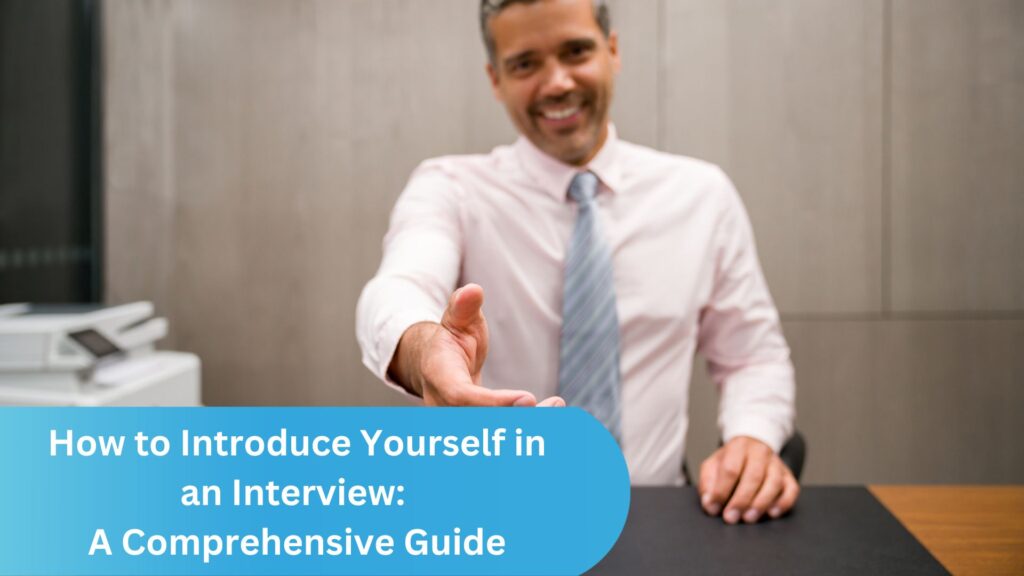Leaving an interview can feel like stepping out of a movie scene — you replay every smile, every question, every word, wondering if you “got the part.”
The good news? Interviewers leave plenty of clues about whether you’re their top candidate — if you know how to spot them.
Below, we’ll break down 20 real signs that you nailed the interview, what they actually mean, and how to use that information to position yourself for success.
1. The Interview Ran Longer Than Scheduled
Hiring managers have packed calendars. If your 30-minute slot stretched into 45 minutes or an hour — and no one seemed to be checking the clock — take it as a major positive.
Why it matters:
An interviewer who is disengaged will politely stick to the time and wrap up quickly. If they go over, it usually means you’re answering questions well and they want to learn more about you, your background, and your thought process.
Real-life example:
Many candidates report that their longest interviews were the ones that led to offers — not because they were talking too much, but because the discussion went deeper into project details and strategy.
Pro tip:
Prepare a few insightful questions about company culture, team challenges, and success metrics — this shows you’re engaged and thinking ahead about how you’d contribute.
2. They Shifted From Questioning to Selling the Company
At the beginning of the interview, it’s normal to be in the “hot seat.” But if halfway through the conversation the interviewer starts telling you why the company is a great place to work, that’s a strong signal.
Watch for clues like:
-
“We have amazing professional development programs.”
-
“Our team has grown 30% this year — it’s an exciting time to join.”
-
“We really value work-life balance here.”
Why it matters:
They are no longer just evaluating you — they’re trying to make sure you want them. This usually means you’re already near the top of their candidate list.
3. They Introduced You to Other Team Members
Being introduced to potential coworkers, managers, or cross-functional partners is more than a courtesy — it’s a cultural fit check.
Strong sign:
If the conversation with those team members was casual and engaging (rather than formal and rushed), it means they want to see how you’d mesh with the group dynamic.
Extra clue:
Sometimes, you’ll get small hints like a team member saying, “We’ll be excited to have you on board if this works out.” These informal comments are often a peek behind the curtain.
4. The Conversation Felt Natural
When an interview feels like a collaborative discussion rather than an interrogation, that’s gold.
Signs of a great flow:
-
The interviewer nods in agreement or builds on your answers.
-
They share their own stories or challenges.
-
The tone becomes more conversational, even joking at times.
Why it matters:
It means they already see you as a potential peer and not just a candidate.
5. They Asked About Your Timeline and Notice Period
This is one of the clearest indicators of serious interest.
Examples:
-
“Would you be available to start in the next month?”
-
“Do you need to give notice to your current employer?”
Why it matters:
Interviewers don’t ask these questions unless they’re actively thinking about when you can join and how quickly they can get you onboarded.
Tip:
Answer clearly and professionally. If you can be flexible, say so — it might make you an even more attractive candidate.
6. You Got Detailed Information About Projects or Clients
Interviewers don’t share specifics about confidential projects with just anyone.
Example clues:
-
“You’d likely work on our upcoming product launch next quarter.”
-
“This role will collaborate closely with the ABC client account.”
Why it matters:
This shows they are picturing you doing the work and are already thinking about where you’d fit in.
7. They Asked for References or Background Checks
Reference checks and background checks are typically the last step before an offer.
Why it matters:
They cost time and money, so most companies won’t request them unless you’re their top choice or one of a very short list.
Extra tip:
Have your references prepared in advance and give them a heads-up so they can respond promptly — quick references can speed up the offer process.
8. They Discussed Compensation or Benefits
Money talk is usually reserved for finalists.
Signs to watch for:
-
They asked about your salary expectations or current pay.
-
They volunteered information about benefits, bonuses, or stock options.
-
They used language like, “We’re confident we can make a competitive offer.”
Why it matters:
Discussing pay means they are serious about hiring you and want to ensure they can meet your needs.
9. You Got Positive Verbal Cues
Interviewers sometimes reveal their thoughts without realizing it.
Listen for phrases like:
-
“You’d bring a lot to the team.”
-
“We’ve been looking for someone with your skills.”
-
“You’d hit the ground running.”
Why it matters:
These are micro-confirmations that you align with what they need.
10. They Talked About Long-Term Opportunities
When a company starts discussing how you might grow beyond the role you’re interviewing for, that’s a major sign they’re invested in you.
Examples:
-
“This position could evolve into a leadership role next year.”
-
“We offer a mentorship program to help you grow here.”
Why it matters:
They are not just trying to fill an empty seat — they’re imagining your future contributions and want to keep you engaged for the long haul.
11. They Followed Up Quickly After the Interview
When a recruiter or hiring manager gets back to you the same day (or within 24 hours), it’s usually a strong signal they’re motivated to keep things moving.
Why it matters:
Slow follow-up often means the team is still debating, comparing candidates, or waiting for approvals. Quick follow-up usually means: “You’re the one we want to move forward with.”
Example:
If you get an email that says, “We really enjoyed speaking with you today and would like to schedule next steps,” you’re likely in the lead.
12. You Were Invited to a Second or Final Round Quickly
Speed is a major indicator of interest.
Signs to watch for:
-
You leave the first interview and have a follow-up email waiting for you.
-
Your next-round interview is scheduled within a few days instead of weeks.
Why it matters:
Hiring managers don’t fast-track candidates they aren’t serious about. Quick scheduling means they want to keep you engaged before you get another offer elsewhere.
13. The Interviewer Shared Internal Challenges Openly
When they trust you with insider information — inefficiencies, growth bottlenecks, or upcoming restructures — that’s a strong sign of confidence.
Example:
-
“We’ve been struggling with data quality in our reporting process, and we’d love someone who can help fix it.”
Why it matters:
They’re already picturing you as a problem-solver on their team. Companies don’t disclose internal pain points to candidates they don’t believe are capable of handling them.
14. They Spent Time Talking About Culture Fit
Culture is one of the most important factors in retention.
Signs of depth:
-
They describe how the team collaborates, celebrates wins, or handles conflict.
-
They tell stories about company traditions, retreats, or volunteer days.
Why it matters:
This means they are already thinking about where you’ll sit, who you’ll work with, and how you’ll contribute to team chemistry — not just whether you can do the job on paper.
15. You Were Asked About Your Goals and Career Plans
When interviewers go beyond the generic “five-year plan” question and start asking about what skills you want to develop, it’s a positive sign.
Example Questions:
-
“Where do you want to grow in your next role?”
-
“Would you be interested in leading projects or mentoring junior staff?”
Why it matters:
They’re thinking beyond the immediate hire and wondering how to keep you engaged over time. That’s a great indicator they see potential in you.
16. They Invited You to Meet Senior Leadership
Being introduced to executives is often a final check before an offer.
Why it matters:
VPs, directors, and CEOs have limited time. If they’re taking a meeting with you, it usually means: “We just need leadership’s blessing to move forward.”
Pro tip:
Be ready with strategic questions for senior leaders — things about company direction, market challenges, and growth plans. This shows you’re already thinking like someone who belongs there.
17. You Got Warm, Enthusiastic Body Language
Interviewers reveal more than they say.
Positive cues include:
-
Smiling when you speak.
-
Nodding and taking notes.
-
Leaning in as you explain something.
-
Matching your energy level.
Why it matters:
Humans subconsciously mirror people they like and respect. If they seem genuinely happy to be talking with you, you’re probably leaving a strong impression.
18. They Talked About Onboarding or Training Dates
This is one of the clearest signs you’re in the final stretch.
Clues to watch for:
-
“Our next onboarding cohort is in July.”
-
“You’d likely spend the first two weeks shadowing the senior engineer.”
Why it matters:
This means they’ve mentally slotted you into their calendar — something they won’t do unless you’re close to getting an offer.
19. You Felt Energized After the Interview
Sometimes your gut knows before your brain does.
Why it matters:
If you walk out feeling excited, like you connected with the interviewer, and you can genuinely see yourself thriving there, that’s often a reflection of how they felt about you too. Good interviews usually feel mutually energizing.
20. You Were Invited to Ask as Many Questions as You Wanted
If the interviewer gave you extra time, stayed past the scheduled end, and encouraged you to ask anything, that’s a great sign.
Why it matters:
This means they want you to feel fully informed before making a decision. They’re already thinking of you as someone who will need to say “yes” to an offer.
Pro tip:
Have a strong list of thoughtful questions ready — it reinforces your enthusiasm and professionalism.
What to Do After a Great Interview
Even if you see most of these signs, don’t just sit back and wait.
-
Send a Thank-You Email: Within 24 hours, mention something specific you discussed and why you’re excited about the role.
-
Stay Professional: Don’t stalk them on LinkedIn or call HR every day. A polite follow-up after a week is enough.
-
Keep Applying Elsewhere: Momentum is key — don’t stop your job search until you have a written offer in hand.
Final Thoughts
Spotting these signs can help you manage post-interview anxiety — but remember, nothing is guaranteed until you get the official offer. If you don’t see some of these signals, don’t panic. Some companies are just more formal and keep things under wraps.
Want to target your applications more effectively? WiseWorq’s business directory helps you discover companies, understand industries, and make smarter career decisions — so your next interview is even more likely to turn into an offer.


